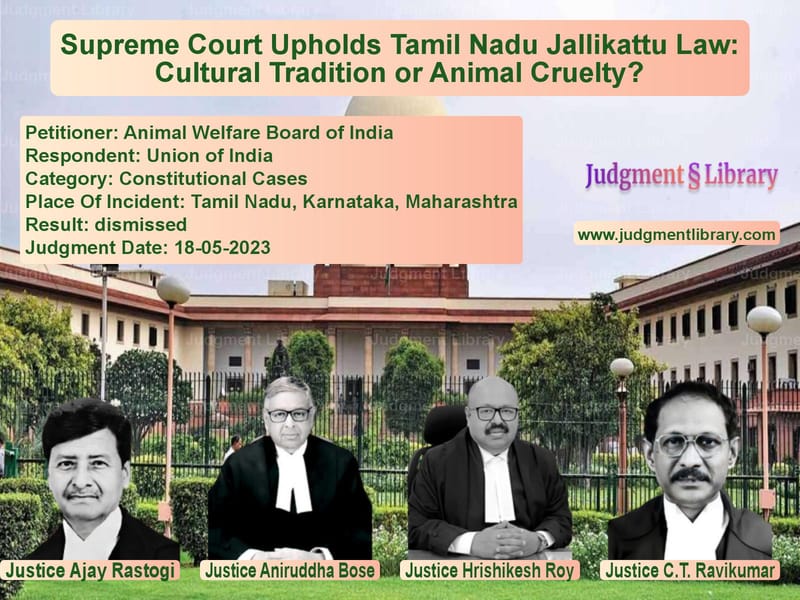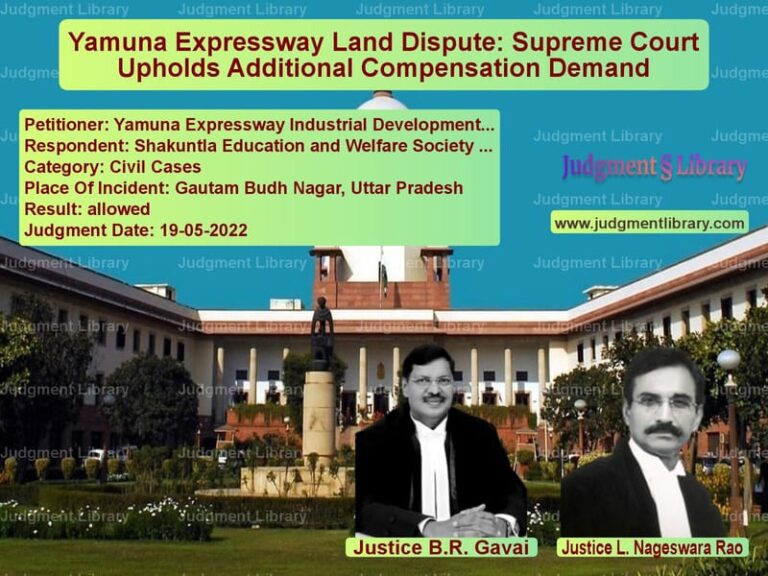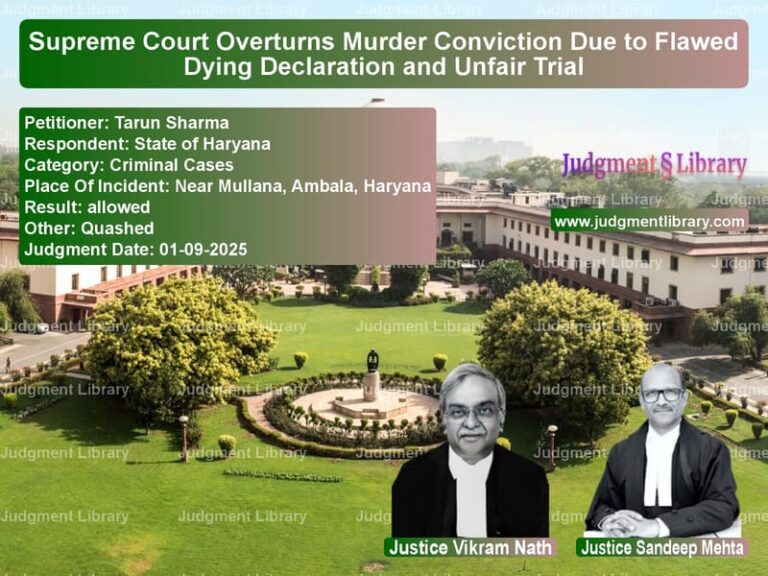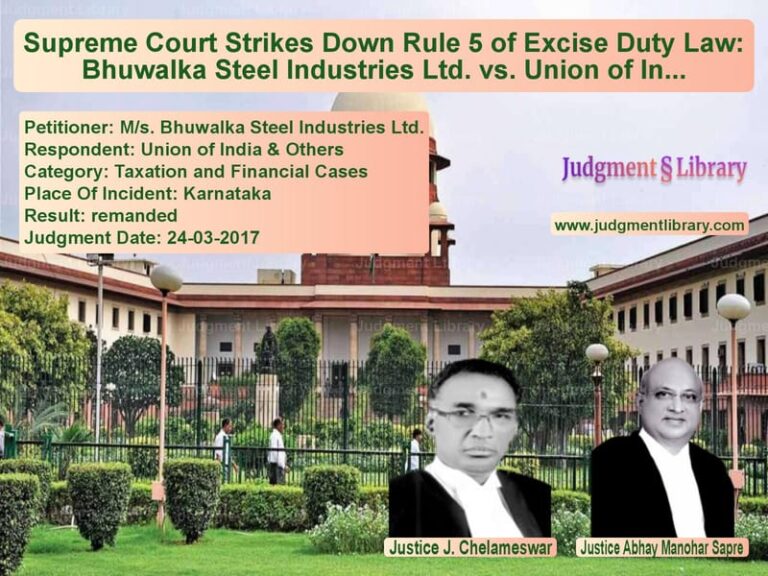Supreme Court Upholds Tamil Nadu Jallikattu Law: Cultural Tradition or Animal Cruelty?
The Supreme Court of India recently delivered a significant judgment in a case involving the legality of Jallikattu, Kambala, and Bullock Cart Race. The case revolved around the constitutional validity of amendments passed by Tamil Nadu, Karnataka, and Maharashtra, which sought to permit these traditional sports despite a prior ruling declaring them illegal due to animal cruelty concerns.
Background of the Case
The case traces back to a 2014 Supreme Court judgment in Animal Welfare Board of India v. A. Nagaraja, which effectively banned Jallikattu and similar events in Maharashtra and Tamil Nadu. The Court held that these activities violated Sections 3 and 11(1)(a) and (m) of the Prevention of Cruelty to Animals Act, 1960, and contravened Articles 14 and 21 of the Constitution of India.
Following this ruling, the Tamil Nadu government passed an amendment in 2017, arguing that Jallikattu was part of its cultural heritage. Karnataka and Maharashtra followed suit with similar laws allowing their traditional bull-related sports. These amendments received Presidential assent under Article 254(2) of the Constitution.
Petitioner’s Arguments
The petitioners, led by the Animal Welfare Board of India and advocate Anjali Sharma, contended:
- The amendments were unconstitutional as they contradicted the Supreme Court’s 2014 ruling.
- Jallikattu and similar events inflicted unnecessary pain and suffering on animals, violating the Prevention of Cruelty to Animals Act, 1960.
- Article 21’s right to life should extend to sentient beings, thereby prohibiting cruel treatment of bulls.
- The Tamil Nadu Amendment Act was not truly aimed at preventing cruelty but was merely a legislative attempt to override the Supreme Court’s earlier decision.
State Government’s Arguments
The respondents, including the Union of India and the respective state governments, argued:
- The amendments addressed the concerns raised in the 2014 judgment by introducing regulatory measures.
- The Prevention of Cruelty to Animals Act allowed certain exceptions for traditional sports, subject to safeguards.
- Jallikattu and other similar events were integral to Tamil, Kannada, and Maharashtrian culture and should be preserved under Article 29 of the Constitution.
- These events played a role in preserving native cattle breeds, which were at risk of extinction.
Supreme Court’s Ruling
The Supreme Court upheld the amendments, stating:
“Jallikattu is going on in the State of Tamil Nadu for at least last few centuries. This event essentially involves a bull which is set free in an arena and human participants are meant to grab the hump to score in the game. Whether this has become an integral part of Tamil culture requires a detailed cultural and historical analysis, which is best left to the legislature.”
The Court emphasized that the new laws and regulations had altered the manner in which these sports were conducted, substantially reducing the cruelty associated with them. It also noted:
“We do not think there was sufficient material before the Court in 2014 to conclude that Jallikattu is not part of Tamil Nadu’s cultural heritage. Since legislative exercise has already been undertaken and Jallikattu has been found to be part of the cultural heritage of Tamil Nadu, we would not disrupt this view.”
Key Takeaways from the Judgment
- The Supreme Court ruled that the Tamil Nadu, Maharashtra, and Karnataka amendments were valid.
- It rejected the argument that the amendments were colorable legislation meant to override the 2014 judgment.
- The Court acknowledged that some level of pain and suffering was inevitable in these events but noted that the legislative changes had significantly mitigated cruelty.
- The enforcement of regulations was emphasized, directing district magistrates to ensure strict compliance.
Conclusion
The ruling reopens the debate on balancing tradition with animal rights. While Jallikattu and similar sports are now legally protected under state laws, concerns remain over their ethical implications. The Court’s decision underscores the complexity of defining cultural heritage while ensuring animal welfare. Moving forward, strict enforcement of regulatory measures will be key in determining the long-term impact of this judgment.
Petitioner Name: Animal Welfare Board of India.Respondent Name: Union of India.Judgment By: Justice K.M. Joseph, Justice Ajay Rastogi, Justice Aniruddha Bose, Justice Hrishikesh Roy, Justice C.T. Ravikumar.Place Of Incident: Tamil Nadu, Karnataka, Maharashtra.Judgment Date: 18-05-2023.
Don’t miss out on the full details! Download the complete judgment in PDF format below and gain valuable insights instantly!
Download Judgment: animal-welfare-board-vs-union-of-india-supreme-court-of-india-judgment-dated-18-05-2023.pdf
Directly Download Judgment: Directly download this Judgment
See all petitions in Fundamental Rights
See all petitions in Constitution Interpretation
See all petitions in Public Interest Litigation
See all petitions in Judgment by K.M. Joseph
See all petitions in Judgment by Ajay Rastogi
See all petitions in Judgment by Aniruddha Bose
See all petitions in Judgment by Hrishikesh Roy
See all petitions in Judgment by C.T. Ravikumar
See all petitions in dismissed
See all petitions in supreme court of India judgments May 2023
See all petitions in 2023 judgments
See all posts in Constitutional Cases Category
See all allowed petitions in Constitutional Cases Category
See all Dismissed petitions in Constitutional Cases Category
See all partially allowed petitions in Constitutional Cases Category







